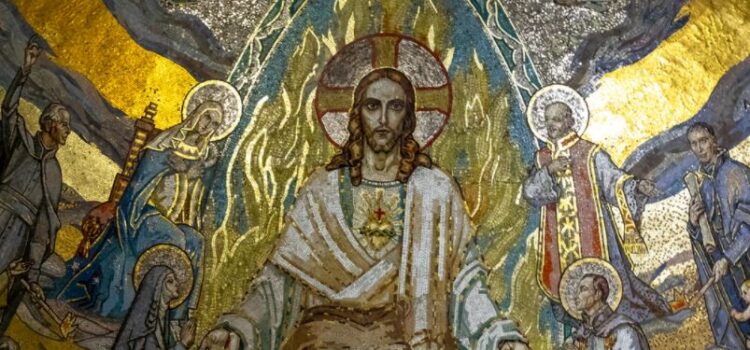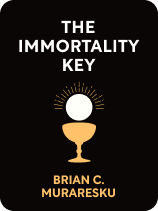

This article is an excerpt from the Shortform book guide to "The Immortality Key" by Brian C. Muraresku. Shortform has the world's best summaries and analyses of books you should be reading.
Like this article? Sign up for a free trial here.
Was Jesus a renamed Greek god Dionysus? What is the connection between the two?
According to Brian Muraresku, Jesus was a Christian form of the Greek god Dionysus. He argues that the indisputable parallels between Dionysus and Jesus were one of the key factors that facilitated the adoption of Christianity by the ancient Greeks, who initially practiced polytheistic paganism.
Keep reading to learn about the connection between the Greek god Dionysus and the Christian prophet Jesus.
Jesus as Dionysus
Muraresku establishes that the form of Christianity that arrived in Greece in AD 49 was likely characterized by mysticism, making the philosophy and practices understandable to the existing population. But why would people who already have a pantheon of gods and goddesses have any interest in a new god or prophet? Muraresku says this new prophet would have to be relatable and recognizable, and he argues that this was the case because Jesus was essentially another form of Dionysus, the god of ecstasy who was worshiped in the Eleusinian rituals.
The two had several similarities that would have made Jesus a recognizable (and acceptable) figure to the Greeks, including:
Immaculate conception:
- Dionysis is the son of the god Zeus and a young human woman named Semele, who is described as a “maiden” or “virgin.” He’s conceived when Zeus visits Semele in the form of an eagle and is described in the mythology as the only begotten son of God. His birthday is celebrated around the Winter solstice.
- Jesus is the son of God and a young virgin woman, Mary. He’s conceived when God visits Mary in the form of a dove. He’s described in the Gospel of John as the only begotten son of God. He’s said to have been born around the Winter solstice.
Turning water into wine:
- Turning water into wine was Dionysus’s specialty. Dionysus was associated with a miracle that occurred every year on January 5 when a spring in the temple would start flowing with wine, called “God’s Gift Day.”
- The Gospel of John tells the story of Jesus performing the miracle of turning water into wine at a wedding feast. The wedding is said to have occurred on January 6, which Christians now celebrate as “Epiphany.”
Blood as wine offers immortality:
- The Bacchae (the story of Dionysus, written by Euripedes in 405 BC) refers to wine as the “blood of Dionysus” and says drinking it will lead to immortality.
- The Gospel of John describes bread and wine as the “true food and true drink, [Jesus’] flesh and blood, that promises eternal life.” John’s words are the identical Greek words used in The Bacchae in reference to Dionysus.
Visual similarities:
- Both Dionysus and Jesus are depicted with long flowing hair and are associated with a purple cloak and a crown of thorns. The crown of thorns was the signature way of identifying Dionysus and his disciples and is a symbol associated with the crucifixion of Christ.
Muraresku argues that these similarities can hardly be coincidental. He says people of this time and place would not have accepted a god without wine, so these descriptions of Jesus, most obviously in the Gospel of John, written between AD 90-100, would have been a perfect way to get Greeks to relate Jesus with Dionysus.
| Dionysus, Bacchus, and the Free Father During this time period, the Greek and Roman cultures and religions were intertwined, and many of the gods and goddesses had counterparts in both pantheons. So the Greek god Dionysus was also called Bacchus in Rome, and the two versions of this god became indistinguishable. However, there was also a third god related to wine and ecstasy—a Roman god called Liber Pater, who became intertwined with Dionysus/Bacchus as well, making this deity something of a trinity. Liber Pater, meaning the “Free Father” in Latin, was associated not only with wine and ecstasy but also with freedom and liberation. |

———End of Preview———
Like what you just read? Read the rest of the world's best book summary and analysis of Brian C. Muraresku's "The Immortality Key" at Shortform.
Here's what you'll find in our full The Immortality Key summary:
- The secret that kept ancient Greeks and early Christians from fearing death
- The origins of Christianity and its overlap with pre-existing pagan customs
- The real reason why women can't be priests






